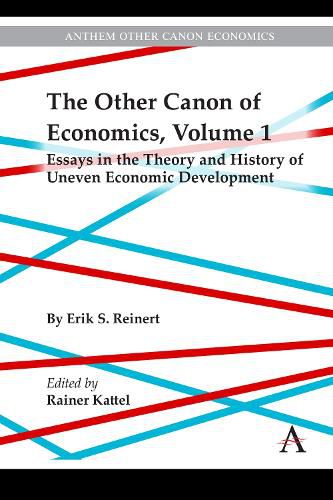Readings Newsletter
Become a Readings Member to make your shopping experience even easier.
Sign in or sign up for free!
You’re not far away from qualifying for FREE standard shipping within Australia
You’ve qualified for FREE standard shipping within Australia
The cart is loading…






Other Canon Economics: Essays in the Theory and History of Uneven Economic Development brings together key essays on development economics from one of the most prolific and important development economists and historians of economic policy today. Erik S. Reinert argues through essays ranging from 1994 to 2020 that neo-classical economics damages developing countries, mostly via adherence to the theory of comparative advantage. Based on a long intellectual tradition - started by the Italian economists Giovanni Botero (1589) and Antonio Serra (1613), Reinert shows that the country which trades increasing returns goods - e.g. high-end manufacture - has advantages over the country which trades diminishing returns goods - e.g. commodities. This has important implications for today’s development strategies that, Reinert argues, should be seen as industrial strategies.
$9.00 standard shipping within Australia
FREE standard shipping within Australia for orders over $100.00
Express & International shipping calculated at checkout
Other Canon Economics: Essays in the Theory and History of Uneven Economic Development brings together key essays on development economics from one of the most prolific and important development economists and historians of economic policy today. Erik S. Reinert argues through essays ranging from 1994 to 2020 that neo-classical economics damages developing countries, mostly via adherence to the theory of comparative advantage. Based on a long intellectual tradition - started by the Italian economists Giovanni Botero (1589) and Antonio Serra (1613), Reinert shows that the country which trades increasing returns goods - e.g. high-end manufacture - has advantages over the country which trades diminishing returns goods - e.g. commodities. This has important implications for today’s development strategies that, Reinert argues, should be seen as industrial strategies.